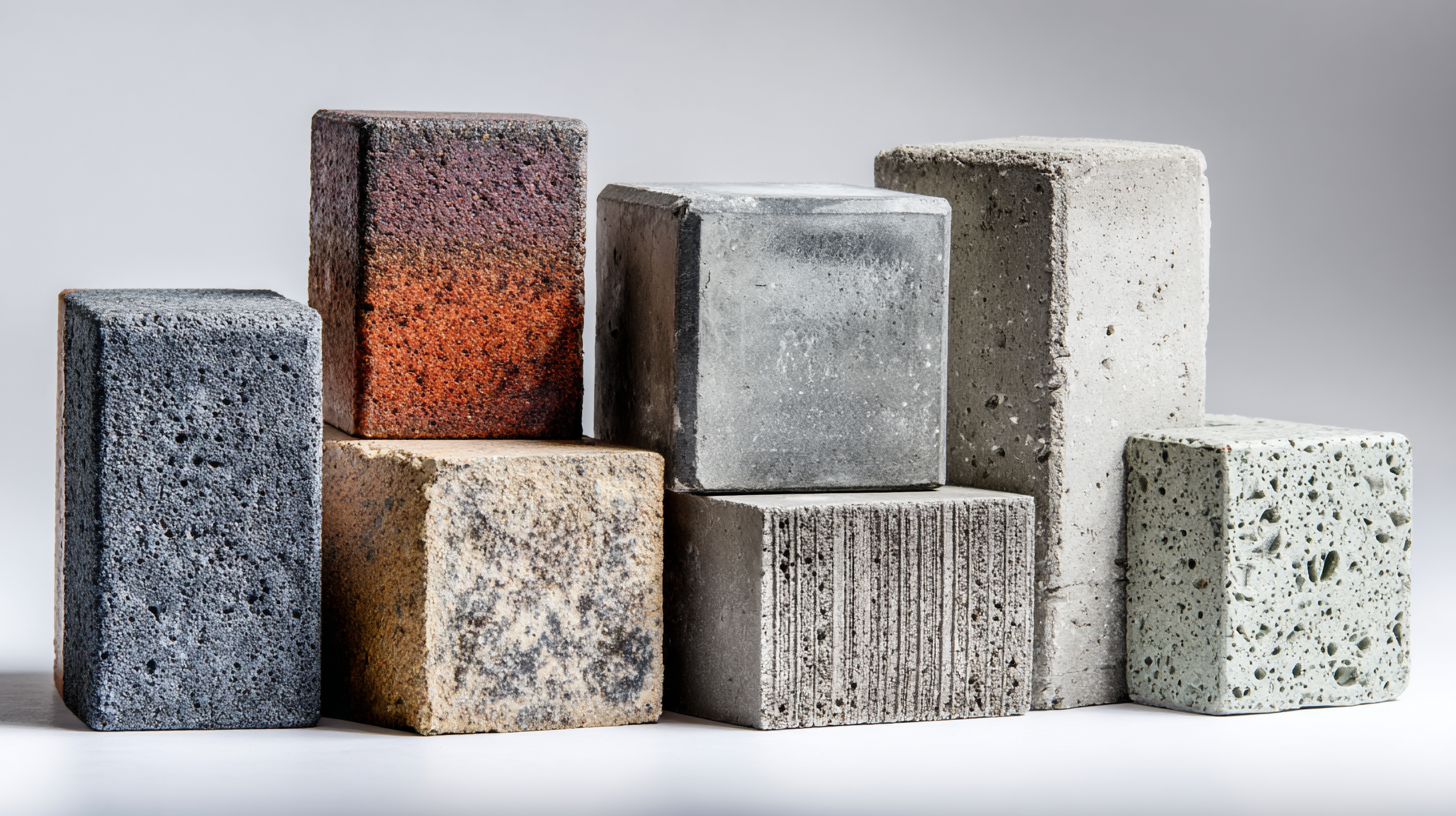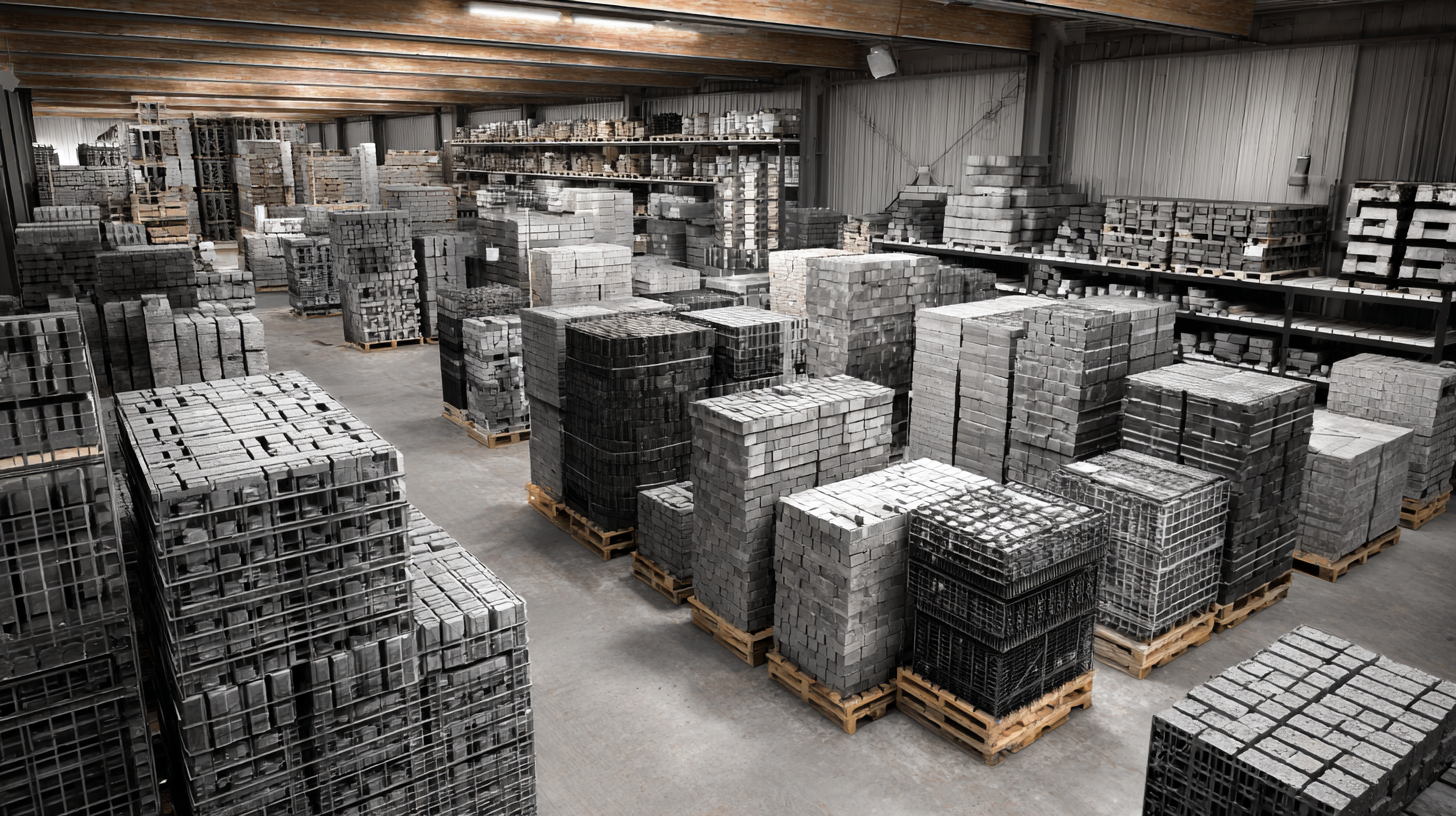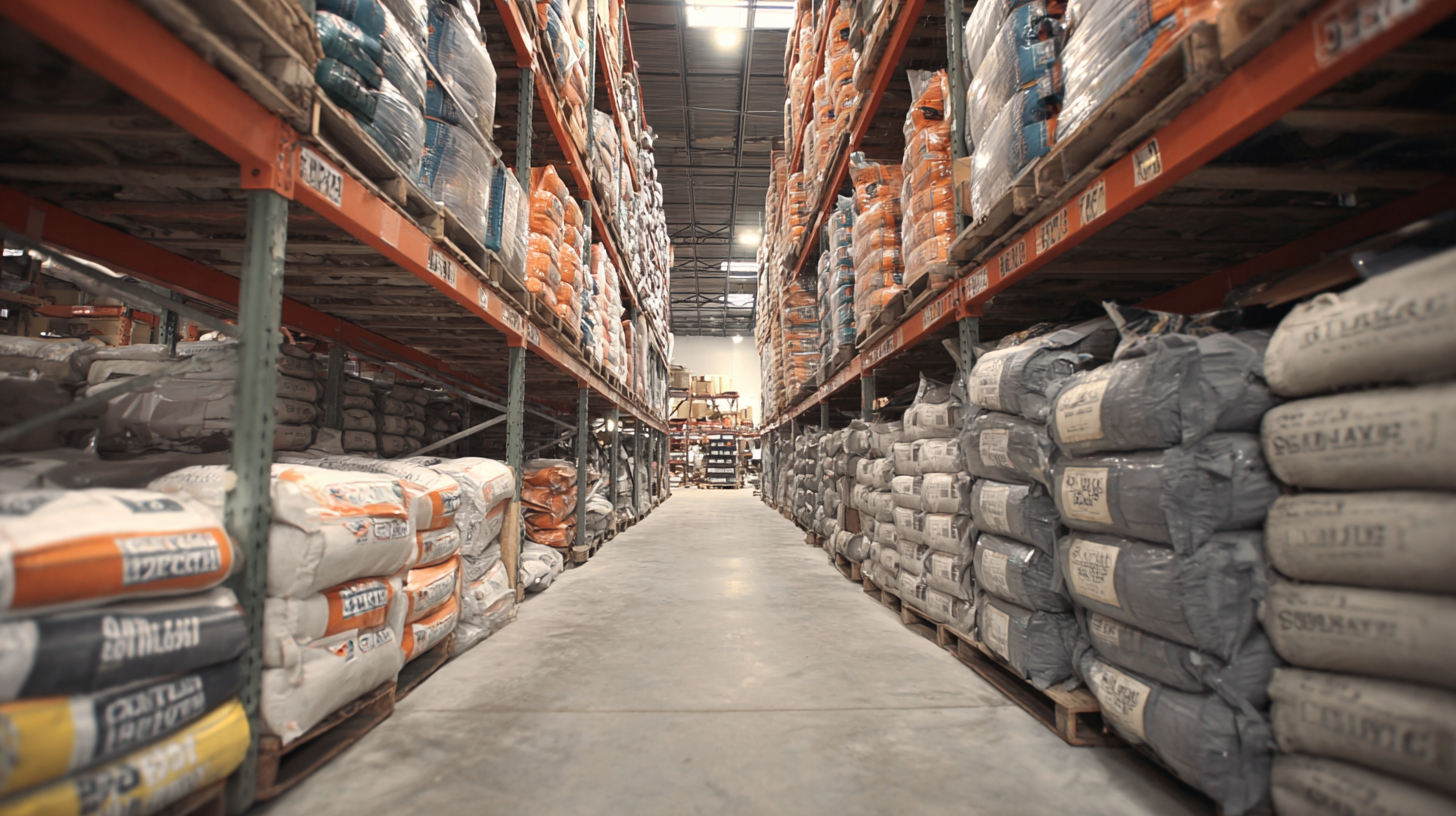How to Choose the Best Concrete Products for Your Global Supply Needs
The global concrete products market has experienced remarkable growth, projected to reach USD 1,000 billion by 2027, driven by escalating construction activities and infrastructural developments. As urbanization accelerates worldwide, the demand for high-quality concrete products has never been higher. This presents both opportunities and challenges for engineers, architects, and construction managers who must navigate an increasingly complex supply chain to meet their specific project needs. Selecting the right concrete products is crucial, not only for ensuring structural integrity but also for adhering to sustainability standards and cost-effectiveness. In this article, we will explore essential tips for choosing the best concrete products that align with your global supply requirements, helping you make informed decisions in a competitive marketplace.

Understanding the Importance of Technical Specifications in Concrete Products
When selecting concrete products for global supply needs, understanding technical specifications is paramount. Concrete's performance and durability depend heavily on the specific materials and mixtures used. Key specifications such as compressive strength, durability ratings, and resistance to environmental factors are essential in ensuring that the chosen product meets the requirements of its intended application. For construction in diverse climates, for instance, concrete designed with lower permeability or enhanced freeze-thaw resistance is critical for longevity.
Moreover, different projects may demand specific standards according to local regulations and industry practices, making it indispensable to have a comprehensive understanding of these factors. Quality control measures and certifications, such as ASTM or EN standards, serve as indicators of a concrete product's reliability and suitability. By closely analyzing these technical specifications, suppliers can ensure that they are providing products that not only meet local requirements but also perform effectively in global markets, thus minimizing risks and maximizing project success.
Key Technical Parameters to Consider When Selecting Concrete Products
 When selecting concrete products for global supply needs, key technical parameters play a crucial role in ensuring optimal performance and durability. One of the most significant factors to consider is compressive strength, typically measured in megapascals (MPa). According to a report by the American Concrete Institute, a compressive strength of at least 30 MPa is typically recommended for structural applications, while high-performance products may exceed 50 MPa. Understanding the specific needs of your project will guide you in choosing the right mix.
When selecting concrete products for global supply needs, key technical parameters play a crucial role in ensuring optimal performance and durability. One of the most significant factors to consider is compressive strength, typically measured in megapascals (MPa). According to a report by the American Concrete Institute, a compressive strength of at least 30 MPa is typically recommended for structural applications, while high-performance products may exceed 50 MPa. Understanding the specific needs of your project will guide you in choosing the right mix.
Another critical parameter is the water-cement ratio, which affects the overall strength and workability of concrete. Industry standards suggest maintaining a water-cement ratio below 0.60 for most structural applications to reduce porosity and improve durability. A report from the Portland Cement Association emphasizes that optimizing this ratio can enhance the lifecycle of the concrete products, making it a vital consideration during selection.
Tips: When assessing concrete products, always request detailed specifications and certifications to ensure compliance with international standards. Additionally, consulting with suppliers about local sourcing of materials can help reduce costs and minimize carbon footprint, aligning with sustainability goals in the construction industry. Regularly monitoring trends in concrete innovation can also provide insights into advanced options that enhance performance and longevity.
Comparing Material Quality and Performance for Global Supply Chains
 When selecting concrete products for global supply chains, the quality and performance of materials are paramount. Different regions may offer varying levels of material quality due to differences in local resources, manufacturing processes, and regulations. Therefore, it is essential to assess the concrete's composition, such as the types of aggregates and cement used, as well as any additives incorporated to enhance performance. By conducting thorough research and sourcing materials from reputable suppliers, businesses can ensure they are obtaining high-quality concrete that meets international standards.
When selecting concrete products for global supply chains, the quality and performance of materials are paramount. Different regions may offer varying levels of material quality due to differences in local resources, manufacturing processes, and regulations. Therefore, it is essential to assess the concrete's composition, such as the types of aggregates and cement used, as well as any additives incorporated to enhance performance. By conducting thorough research and sourcing materials from reputable suppliers, businesses can ensure they are obtaining high-quality concrete that meets international standards.
Performance is another critical aspect that must be evaluated when choosing concrete products. Factors such as compressive strength, durability, and resistance to environmental stressors directly impact the longevity and functionality of the structures being built. Testing and certification from recognized bodies can provide reassurances that the concrete products will perform as expected across various conditions. Additionally, considering the logistical aspects of transporting concrete can influence the decision, as the weight and bulk of concrete can significantly affect cost and efficiency in global supply chains. By weighing these factors, organizations can make informed decisions that not only fulfill their supply needs but also contribute to project success.
Evaluating Certifications and Compliance Standards for Concrete Products
When selecting concrete products for global supply needs, understanding certifications and compliance standards is crucial. According to a recent industry report by the International Concrete Alliance, approximately 40% of construction projects face delays due to non-compliance with local and international standards. This highlights the importance of sourcing certified materials that align with regulatory requirements. Products adhering to ASTM (American Society for Testing and Materials) standards, for instance, ensure consistent quality and performance, significantly reducing the risk of project disruptions.
Moreover, the adoption of ISO (International Organization for Standardization) certifications can further enhance credibility. In a study published by the Global Cement and Concrete Association, it was found that companies with ISO certifications experienced 30% fewer quality-related issues. These certifications not only assure the quality of concrete products but also exemplify a company's commitment to sustainability and environmental responsibility – factors increasingly important to modern consumers. Investing time in verifying the certifications associated with concrete products can lead to long-term benefits in project success and environmental impact.
How to Align Product Specifications with Project Requirements and Regulations
When selecting concrete products for global supply needs, aligning product specifications with project requirements and regulations is crucial. Each construction project comes with its unique set of challenges, and understanding local building codes, environmental standards, and safety regulations is the foundation of successful procurement. Engaging with local experts can provide insights into specific specifications that must be met, positioning your project to not only comply with regulations but also thrive in the local market.
Furthermore, it is essential to evaluate the technical characteristics of concrete products, such as strength, durability, and sustainability. These factors should align with project requirements to ensure that the materials can withstand local climate conditions and meet long-term usage expectations. By meticulously assessing both the regulatory landscape and the technical specifications required for your project, you can confidently choose concrete products that fulfill both compliance and performance needs, ultimately leading to a successful and efficient construction process.
How to Choose the Best Concrete Products for Your Global Supply Needs
| Product Type | Specifications | Project Requirements | Regulatory Compliance | Supplier Recommendations |
|---|---|---|---|---|
| Ready-Mix Concrete | Compressive Strength: 25-40 MPa | Foundations, Slabs, and Paving | ASTM C387, ACI 318 | Local Producers, National Suppliers |
| Precast Concrete | Dimensions Vary, High Durability | Bridges, Walls, and Overpasses | PCI, AASHTO Standards | Specialized Precast Factories |
| Concrete Blocks | Standard Size 8x8x16 inches | Walls, Barriers, and Retaining Walls | ASTM C90 | Local Manufacturers |
| Shotcrete | Pumpable, 28-Day Strength 30 MPa | Tunneling, Slope Stabilization | ACI 506.2 | Global Supply Chains |
